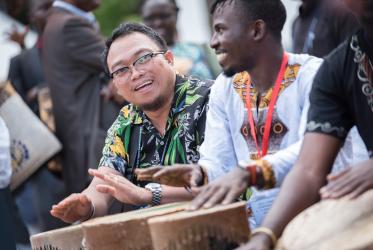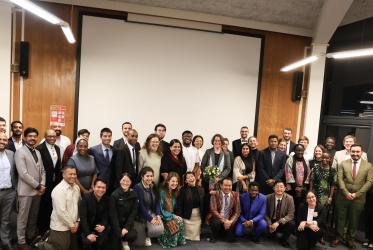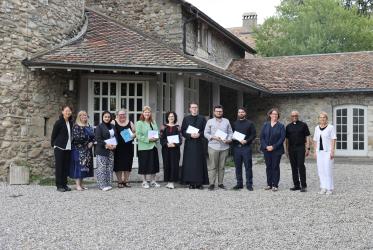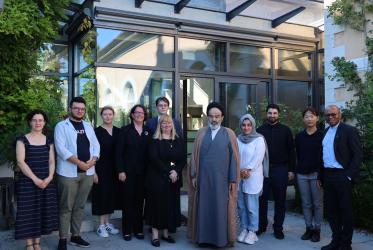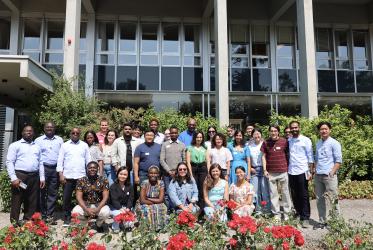Rev. Dr Simone Sinn, professor of Ecumenical Theology at the Ecumenical Institute in Bossey near Geneva, said she believes "it was indeed an excellent experience" after the 5 April-12 June course ended.
"It was a pilot project, but the response was outstanding," said Sinn. The course had 60 participants from 32 different countries, and the students learned a lot. "The students were from a huge array of different regions and confessional groups," said Sinn. "And they are still connected. They have a Facebook group, and they have exchanged their contacts. So the network goes on, beyond us organizing it," she said.
The teaching team consisted of six Bossey faculty members with expertise in diverse theological fields. Many students have full-time jobs in church or theological education, and they linked up well, said Sinn, who felt rewarded with the hard work of connecting diverse global time zones.
Looking at the practical
"People engaged in conceptual discussion about ecumenism as well as looked into real practical concerns and opportunities. And for me, that was a great value. They learned the challenges between the churches or with society as they tried to find answers," she said.
Direct personal encounter continues to be the hallmark of ecumenical learning at Bossey. However, the faculty decided to expand its program and offer an online course to respond to the travel restrictions given the COVID-19 pandemic.
Argyro Delidaki from the Orthodox tradition is from Greece, but since 2019 has lived in Vienna and had been a theology faculty student at the National and Kapodistrian University of Athens.
"I found the course fulfilling," she said. "It was an excellent overview of the Ecumenical movement. It was also firmly structured.
"Additionally, I had the unique opportunity to communicate and exchange views with people from all around the globe. We became good friends and still maintain contact after the course."
Preparing to serve God
Dr Sawako Fujiwara of the Japan Evangelical Lutheran Church said she took the course "because I hope to prepare myself to better serve God and people in becoming a board member of the National Christian Council in Japan from mid-March 2021."
She noted that Christians make up only one percent of Japan's population.
"I believe that Bossey's online courses will be of great help to me as I use my expertise and characteristics to contribute to the revitalization of the ecumenical movement at the regional and local levels by motivating laity, women, youth and other marginalized people," said Fujiwara.
Rev. Fredrick Ochieng Onyango is a parish priest for the Anglican Diocese of Maseno South in Kenya and is also the diocesan missions director.
"As a theological resource and enabler, I am involved in facilitating ecumenical theological engagement, training church leaders from diverse traditions on how to respond to contemporary societal challenges," said Onyango.
He would like to see the study period extended to 12 weeks to further engage with the church and society module.
"I believe that more time should be given in exploring the location of the church in the public sphere," said the Kenyan priest.
Baptist pastor Débora Angélica García Morales from Managua in Nicaragua teaches at the Baptist Seminary in feminist theology and mission and found all aspects of the course “critical and pertinent.
“In Nicaragua, we need to engage more in ecumenical studies, especially in the Baptist Church. Also, we need to hear more about the historical theological contribution of Latin America and the Caribbean in ecumenism,” said Morales.

